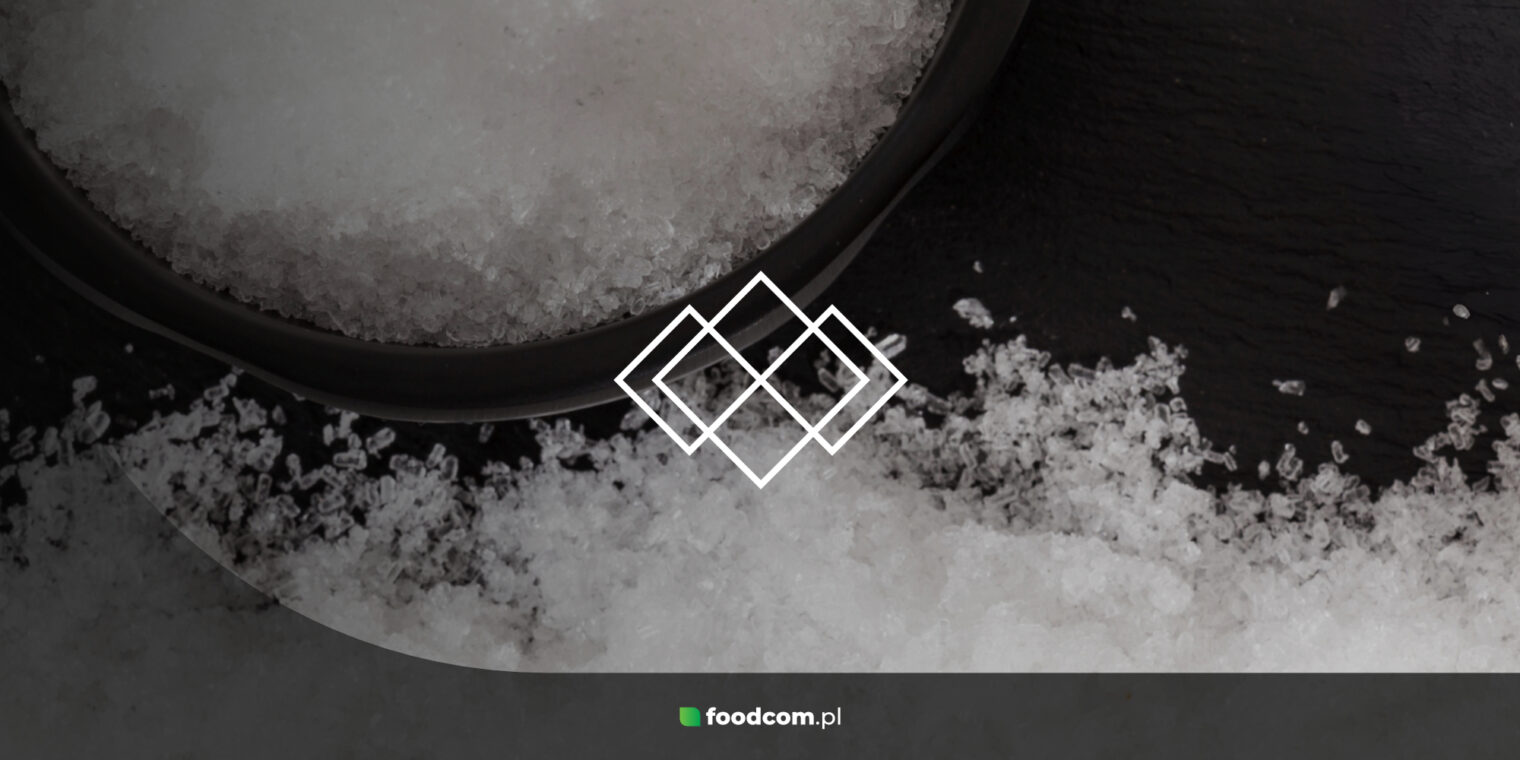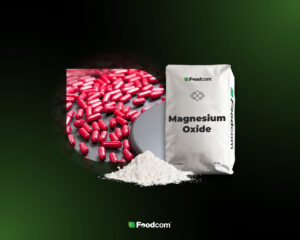- Magnesium chloride is a salt in the form of white flakes, most commonly found in a hydrated form.
- This compound is obtained from seawater, bischofite found at the bottom of the seas, or from brines. Popular sources of magnesium chloride include the Great Salt Lake and the Dead Sea.
- Magnesium chloride is used as a dietary supplement for easy absorption of magnesium, as well as an agent for relieving inflammation and pain, and improving skin condition.
- It is also used in the food, construction, chemical industries, and in agriculture as a component of fertilizers and animal feed.
- In road construction, magnesium chloride is used to remove snow and ice, successfully replacing the less efficient and more harmful road salt.
Magnesium chloride is an inorganic compound with many different applications. It is commonly used in the chemical and pharmaceutical industries, but its use in road construction remains underappreciated, being replaced by much less efficient and more harmful road salt. Essential for the functioning of living organisms, magnesium is well absorbed from magnesium chloride. What are the chemical properties of MgCl2 and its applications?
What is Magnesium Chloride?
Magnesium chloride is described by the formula MgCl2 – it consists of one magnesium ion and two chloride ions. It most commonly occurs in a hydrated form, such as hexahydrate magnesium chloride with the formula MgCl2·6H2O. The compound usually takes the form of whitish flakes, or alternatively, crystals or granules.
Hydrated magnesium chloride salt is most often obtained from seawater or brines by precipitating magnesium hydroxide using bases, applying hydrochloric acid, and concentrating or crystallizing. Hexahydrate magnesium chloride can also be obtained by reacting hydrochloric acid with magnesium carbonate or oxide and crystallizing the product. Anhydrous salt can be obtained, for example, by heating magnesium oxide with carbon and chlorine.
Magnesium Chloride and its properties
Magnesium chloride is a highly hygroscopic substance, meaning it easily binds with water. Regarding other chemical and physical properties of magnesium chloride, the anhydrous salt is an odorless substance and dissolves well in water – its solubility is 54 g per 100 ml of water at 20°C. It dissolves less in ethanol and only slightly in acetone and pyridine. The boiling point of magnesium chloride is 1412°C, while its melting point is 714°C, or 117°C in its hydrated form.
Magnesium Chloride market
In 2022, the value of the global magnesium chloride market was nearly half a billion dollars, and this amount continues to grow. Experts estimate a steady increase until 2030, when it may reach even 3-4 billion dollars. Currently, nearly 2,000 tons of magnesium chloride are produced annually – in 2022, this figure reached 1,700 tons, while by 2035, production is expected to increase to 2,900 tons. The largest market for magnesium chloride, with 44% of revenue, covers the South Asia and Pacific region. Some of the main suppliers of magnesium chloride include: Nedmag Industries, Alkim Alkali Kimya A.S., Tessenderlo Group, Compass Minerals International Inc., Shouguang Dingsheng Chemical Co., Intrepid Potash Inc., Weifang Yuze Chemical Co., Uralkali JSC, HuiTai Investment Co., Qinghai Salt Lake Potash Co., Israel Chemical Limited, NikoMag, and others.
Harvesting Magnesium Chloride
The magnesium chloride available on the market is in the form of a water-soluble salt, extracted from brine or seawater. Production sites for magnesium chloride include the Great Salt Lake in North America and the Dead Sea in the Jordan Valley. Magnesium chloride is produced from brines extracted from these bodies of water, which are exceptionally rich in this salt. The raw material can also be produced from bischofite – a mineral found in the marine Cechsztyn strata in Northwestern Europe. Smaller quantities of magnesium chloride are obtained by evaporating seawater.
Uses of Magnesium Chloride
Magnesium chloride is a compound that has many different applications, both in industry and everyday use. Some of these are widely known, while others are underappreciated. Let’s take a look at the various ways and areas where magnesium chloride can be used.
Magnesium Chloride as a pharmaceutical preparation
Magnesium chloride, due to the good bioavailability of the element in the human body, is often used as a medicinal product. Its use is safe, but it can be toxic in large doses, especially for people with impaired kidney function.
Magnesium is essential for the proper functioning of every cell in the human body, particularly in nerve conduction and maintaining water-electrolyte balance. Supplementing with magnesium chloride increases vitality and resistance, strengthens bones, improves memory and concentration, has antithrombotic and anti-inflammatory effects, reduces the impact of stress and prevents depression, insomnia, and fatigue. It also protects the heart and blood vessels.
Magnesium Chloride in cosmetology
The positive effects of magnesium chloride in aiding the treatment of skin diseases such as psoriasis, atopic dermatitis, eczema, and acne have been observed. It also prevents premature aging of the skin, fights bacteria on its surface, and soothes inflammation.
In cosmetology, magnesium chloride for baths is popular, which improves skin hydration, aids in the treatment of rheumatism, muscle pains, wound healing, soothes inflammation, and restores the body’s magnesium balance. A bath with magnesium chloride is also an excellent method for relaxation and calming the nerves.
Magnesium chloride oil can be used as a natural antiperspirant, hair mist, or massage oil, or applied to sore parts of the body.
Magnesium Chloride in road construction
Magnesium chloride is used in road construction to prevent icing on surfaces such as roads, sidewalks, paths, parking lots, bridges, and airports. Sprayed on surfaces, it can prevent ice formation, remaining active for several days.
It is used as an alternative to road salt for ice and snow removal – magnesium chloride absorbs water, releasing heat that melts the ice. Unlike salt, it works at temperatures as low as -50°C. To achieve the same effect, about 10 times less magnesium chloride is needed compared to road salt.
Magnesium chloride is less damaging to concrete surfaces than road salt or calcium chloride, does not cause corrosion to vehicles, and is harmless to humans and animals. Despite this, it’s important to control the amount used to avoid environmental contamination from excessive use.x
Magnesium chloride can also be used to prevent erosion and stabilize soil, remove dust and dirt from unpaved roads, sports fields, gravel tracks, or courts
Magnesium Chloride in culinary uses
In Asian countries, magnesium chloride obtained from seawater is the main ingredient of the seasoning known as bittern, also called nigari or lushui. The seasoning has a bitter-salty taste and is a good source of magnesium and trace elements in the diet, which is why it is used as an ingredient in modified milk for infants. It is also used as a coagulant in the production of tofu from soy milk.
Magnesium Chloride as a component of fertilizers
Magnesium chloride is a source of easily absorbable magnesium not only for humans but also for plants. Both magnesium and chlorine are essential for their proper growth and maintaining the right chlorophyll content. Therefore, this salt is often a component of plant fertilizers, used interchangeably with magnesium sulfate.
The dosage of the compound must be appropriately adjusted, as in too large quantities it can be toxic to plants or disrupt their ability to absorb water and nutrients, and increase susceptibility to diseases.
Magnesium Chloride in animal nutrition
Magnesium chloride also plays an important role in the nutrition of farm animals, such as cattle and pigs. Magnesium deficiency is a common mineral metabolism disorder in herds, especially those fed with deficient feed without mineral supplements. Magnesium chloride can be used prophylactically as an additive to feed or as oral magnesium boluses. In cases of magnesium deficiency in a herd, magnesium chloride can be administered intravenously or rectally. In adult cows or pigs, magnesium deficiency can manifest as nervousness, and in calves, it can also cause tetany.
Magnesium Chloride in Industry
In household chemistry and industry, magnesium chloride is used in the production of soap, detergents, and also polyolefins, calcium, and metallic magnesium. Other applications include accelerating the binding and sealing of mortar and concrete, use in pH stabilizing agents, as an auxiliary agent in wastewater treatment plants, and as a laboratory reagent, including for drying gases and liquids in chemical syntheses. Magnesium chlorate is also used for the latter application.
Which Magnesium Chloride to Choose? Available options and alternatives
Magnesium chloride is available on the market in anhydrous or hydrated forms. The most common are preparations of the hexahydrate salt of magnesium chloride. They are sufficient for most applications, but for chemical analyses or in industry, such as for the extraction of metallic magnesium, the use of anhydrous salt is necessary. The choice of the right product depends on the purpose for which magnesium chloride is to be used.
The market also offers plenty of alternatives to this compound. For many applications, such as in the pharmaceutical industry or agriculture, it is possible to use other magnesium salts, like magnesium oxide or magnesium sulfate. In road construction, for dust control and soil stabilization, a good environmentally safe substitute for magnesium chloride is enzymatic preparations. For ice control, the aforementioned road salt (sodium chloride) and calcium chloride are used.
Summary
Magnesium chloride is a compound with many different applications, not just in the chemical industry. It is worth recognizing its full potential, especially compared to traditionally used compounds that are often more harmful to the environment or less efficient.
Magnesium chloride present in dietary supplements is several times more soluble in water than other magnesium salts used in pharmacology, making it more absorbable. Used in fertilizers, magnesium chloride meets plants’ needs not only for magnesium ions but also for chlorine. In road construction, it is slowly replacing road salt, which is less effective and more harmful to the environment and the surfaces where it is applied.
Furthermore, magnesium chloride is relatively easy to produce due to its availability from seawater. In conclusion, the use of magnesium chloride can be a good alternative to other compounds that have been traditionally used.










